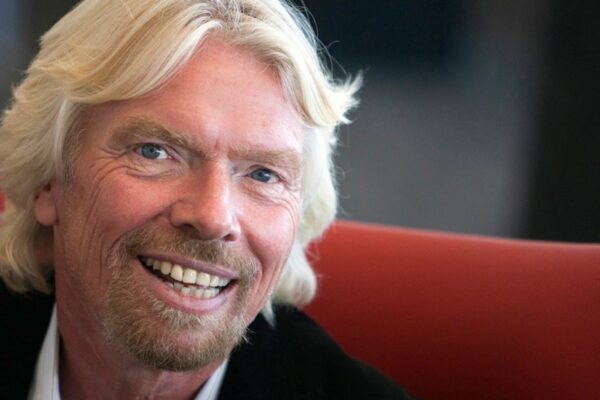You would think that running a shipping company with the current fuel prices and the financial turmoil it’s probably not a very good business. Well, think again: think about shipping for less (exactly what people are looking for in a slowing economy) and shipping greener (in a fuel-starved time). I’ve got the chance to talk about all this with Justin Brown from First Global Xpress – a new breed of shipping companies that work on business models better adapted to the new economic situation. Here is what I found out:
Hi, Justin, and Welcome on board. Tell us a little bit about your company, what does it do?
Justin: Thank you for taking the time to learn a bit about First Global Xpress. FGX is an international air courier company. FGX competes with larger courier companies, including FedEx, UPS, and DHL, in the international shipping market. We have been able to compete successfully because we ship directly from point A to point B (unlike our hub-and-spoke competitors). By shipping direct, FGX saves our clients time, money and even reduces their carbon footprint.
You started with FGX in 2002 at the age of 23. A company like yours seems to have a big turnover and probably a big number of employees. Isn’t that scary at the age of 23?
Justin: It’s true that taking risks professionally can be a scary thought, but I think the younger you are, the higher your risk tolerance should be. If I were to lecture to a class of young people studying business, I would encourage them to take calculated risks.
FGX now has contracts with over 100 airline companies. Most Small Business Entrepreneurs would be scared to go to a huge airline company and make a deal. Do you remember signing your first contract?
Justin: I was fortunate enough to be partnered with James Dowd. He has experience working inside DHL and a smaller import/export company located at JFK. The major issue for FGX wasn’t breaking the ice with the airline executives; it had a check in-hand as a deposit against future billing.
What advice would you give to start-up entrepreneurs that want to enter a market where only big players are playing?
Justin: My advice is to place a high value on innovation. Re-imagine what the business space is as a whole. Think about what a company would look and feel like servicing that market, then get to work. The ultimate goal of any small business in a market with large players is to innovate what the value proposition is. Raise the bar and change how your clients look at your business.
FGX puts a great deal of interest into shipping greener. Can you explain how this is accomplished?
Justin: All roads lead back to shipping direct. By shipping direct, FGX is decreasing the number of miles a shipment travels. After partnering with some of the leading scientists that study the supply chain and its effects on the environment, FGX can measure, with accuracy, the amount of GHG (greenhouse gas) that we remove from our clients’ shipping platforms.
Ok, so that means shipping should also be less expensive?
Justin: Bingo! By shipping direct, we’re also reducing the number of infrastructure costs associated with moving a package. Couple that with piggybacking an already existing infrastructure instead of owning the infrastructure, and we are set up to keep the cost of international shipping low.
You ship mainly from New York City, you ship for less, and you ship greener. Would you call this a niche?
Justin: Yes, I would call it a niche. FGX is an international courier company. We don’t compete for “all” of our client’s shipping work. In that sense, we are a niche, but luckily for us, it a niche with a very large market.
What are the biggest challenges in running a shipping company in the 21st Century?
Justin: Regulations (*see TSA), quality control, and the ever-growing communications that need to be organized and managed.
You studied biology at the University of Maine; now you’re dealing with shipping. How did you decide to make this career change?
Justin: Well, it was really decided for me. I moved to New York City 4 months before September 11th with a couple of friends from Massachusetts. I wasn’t in a rush at the time to get started with my professional life, and then everything changed. The economy shut down completely in New York City, but I knew I wanted to give it a go here, so I fell back on core competency – I had to make money “selling” something. I started working with a local messenger and trucking company to build out their sales team. That was my introduction to the transportation industry. Soon after, I met James. The rest is history.
Tell me about the New Client Challenge.
Justin: One of the things that small businesses face when competing with large market leaders is the prospect of fear of change. If our competitors have a service failure, it’s not the person who awarded the business to (FedEx, UPS, DHL, or another courier)’s fault. If FGX, “a smaller private courier,” has a service failure, it could be blamed on the person who awarded the opportunity to us. By providing our prospects the ability to ship with FGX for free for a week, we can mitigate many of the aforementioned concerns by proving ourselves through action rather than words.
If you were to start all over again, what would you do differently?
Justin: Great question. I would define both my and James’s roles within the company earlier.
You have recently adopted two office cats. Why?
Justin: We mentioned the consideration of cat adoption on our Shipgreener blog. We have a bunch of pet lovers in our office and a few “nighttime visitors” that cats would surely enjoy meeting.
Any plans for the future?
Justin: That is a fairly open-ended question but in a word, YES! I will sum it up with the words “market penetration.”
How did you promote FGX in the first years? Let’s say 2002; how did people find out about FGX?
Justin: Good old-fashioned sales.
How would you describe the typical FGX customer?
Justin: I would describe our classic customer as a company participating in the global economy in some way.
What’s the biggest mistake you made so far?
Justin: Allowing difficult business situations to distract you from spending enough time working on your core business. I’ve pledged to remain focused and know when to move forward.
Any advice for young entrepreneurs willing to start “big”?
Justin: Sure, do it! Do it now, and don’t be afraid to ask for help and advice from everyone you know.
Any funny stories to talk about?
Justin: I’ll share a story, just promise you won’t tell my Communications Manager. She’d probably put the kibosh on a humorous story like the one I’m about to share…
It’s is a story about shipping manure: Yup. I said manure. In the 16th and 17th centuries, everything had to be transported by ship. It was also before commercial fertilizer’s invention, so large shipments of manure were common. Manure was shipped dry because, in dry form, it weighed a lot less than when wet, but once water (at sea) hit it, it not only became heavier, but the process of fermentation began again, releasing methane gas. As the stuff was stored below decks in bundles, you can see what could (and did) happen. Methane began to build up below decks, and the first time someone came below at night, with a kerosene-oil lantern, BOOOOM! Several ships were destroyed in this manner before it was determined just what was happening. After that, the bundles of manure were always stamped with the term” Ship High In Transit,” which meant that the sailors had to stow it high enough off the lower decks so that any water that came into the hold would not touch this volatile cargo and start the production of methane. There evolved the term “S.H.I.T,” which has come down through the ages and is in use to this very day. Oh s.h.i.t. Here comes my Communications Manager.





